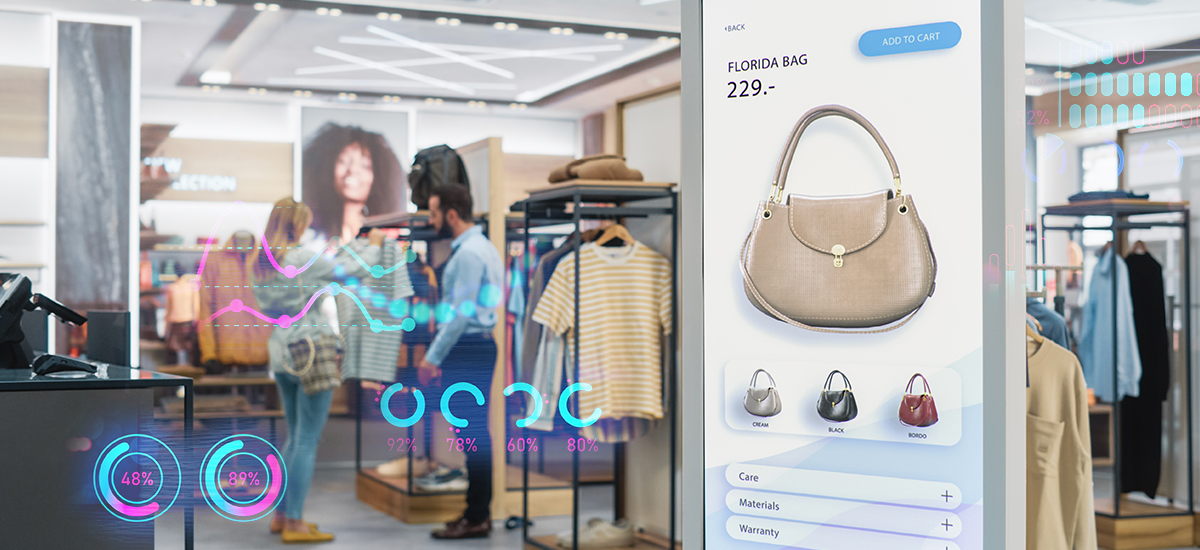
Listen to this blog
Abstract:
Generative AI, a rapidly evolving technology with the ability to create new content, has the potential to significantly impact classical process automation in the retail industry. This whitepaper explores the transformative potential of generative AI by providing specific examples of its applications across various retail operations. We will analyze how generative AI can automate repetitive tasks, optimize workflows, and ultimately improve customer experience and business outcomes.
Introduction:
The retail industry is constantly evolving, driven by changing consumer expectations and technological advancements. In this competitive landscape, retailers are increasingly looking for ways to automate processes, streamline operations, and enhance customer experience. Generative AI presents itself as a powerful tool to achieve these goals by automating tasks that were previously considered too complex or time-consuming for traditional automation methods and often need human in loop which deters organizations from going in automation route. Specifically Generative AI will have an impact on customer experience significantly.
Impact of Generative AI on Process Automation:
Generative AI can automate various retail processes almost end to end, including:
Inventory Management Optimization:
- Demand forecasting: Generative AI models can analyze historical sales data, consumer trends, and market fluctuations using LLM model to predict future demand with greater accuracy, enabling retailers to optimize inventory levels and prevent stockouts.
- Dynamic pricing: Generative AI can dynamically adjust product prices in real-time based on market conditions, competitor pricing, and customer demand, leading to increased profitability and competitive advantage.
- Personalized product recommendations: Generative AI can analyze customer purchase history and preferences to suggest relevant products, enhancing customer satisfaction and driving sales.
Customer Service Enhancement:
- AI-powered chatbots: Generative AI can be used to develop chatbots that can answer customer questions, process orders, and resolve issues 24/7, improving customer service efficiency and reducing operational costs. External facing chatbot can even enhance user experience by providing them product recommendation based on events.
- Personalized marketing campaigns: Generative AI can create personalized marketing materials and promotions tailored to individual customer preferences, leading to more targeted and effective marketing campaigns.
Supply Chain Management:
- Route optimization: Generative AI can optimize delivery routes and schedules for logistics and transportation based on historical data points, leading to reduced costs, improved efficiency, and faster delivery times.
- Predictive maintenance: Generative AI can analyze sensor data from equipment and infrastructure to predict potential failures before they occur, enabling proactive maintenance and preventing costly downtime.
Specific Examples:
- Amazon: Uses generative AI for demand forecasting, allowing them to optimize inventory levels and reduce waste. This has resulted in a significant decrease in stockouts and increased sales.
- Walmart: Uses generative AI-powered chatbots to answer customer questions about products and orders. This has led to improved customer service satisfaction and reduced call center volumes.
- Nike: Uses generative AI to design and develop new products. This has allowed them to accelerate product development times and bring new products to market faster.
Benefits of Generative AI:
- Increased efficiency and productivity: By automating repetitive intelligent tasks, generative AI can free up human resources for more strategic activities, leading to increased efficiency and productivity. Classical automation was already doing these but restricted to non-intelligent task with reduce decision making capabilities.
- Improved customer experience: Generative AI can personalize the customer experience by offering tailored recommendations, responsive support, and dynamic pricing, leading to increased customer satisfaction and loyalty. Gen AI gives capability to do intelligent user interaction producing increased user satisfaction and in turn greater sales and revenue.
- Reduced costs: By optimizing inventory levels, predicting demand, and preventing equipment failures, generative AI can help retailers reduce operational costs and improve profitability.
- Enhanced competitive advantage: By automating intelligent processes and adopting innovative technologies, generative AI can help retailers stay ahead of the competition and gain a competitive edge.
Challenges and Considerations:
While generative AI offers significant benefits, there are also challenges and considerations that must be addressed:
- Data quality and security: Generative AI models rely on high-quality data to function effectively. Retailers must ensure that they have robust data security measures in place to protect sensitive customer information.
- Bias and fairness: Generative AI models can be biased, which can lead to unfair or discriminatory outcomes. Retailers must be aware of the potential for bias and take steps to mitigate it.
- Ethical considerations: The use of generative AI raises ethical concerns, such as job displacement and the potential for manipulation. Retailers must consider the ethical implications of their use of generative AI and ensure that it is used responsibly.
- Carbon footprint: Gen AI models are highly compute intensive and generate lots of carbon footprint. From sustainability perspective users’ needs to keep a tab on that aspect.
Conclusion:
Generative AI has the potential to revolutionize intelligent process automation in the retail industry. By automating intelligent1 tasks, optimizing workflows, and enhancing the customer experience, generative AI can help retailers improve efficiency, boost sales, and gain a competitive edge. While challenges exist, proactive planning and responsible implementation can enable retailers to harness the power of generative AI to achieve significant business success. Connect with our experts today to learn how using GenAI, Visionet can help you to transform intelligent process automation within the retail sector.
Author – Abhishek Mallik (VP Digital Automation & Managed Services)


